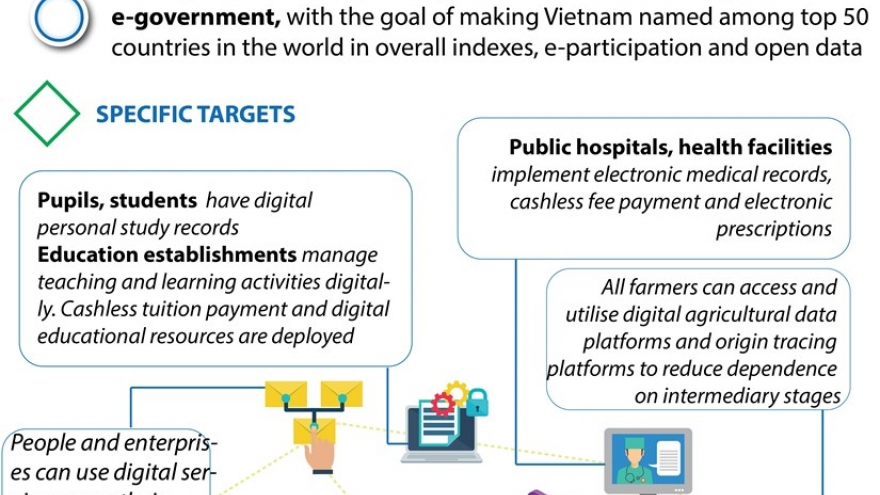Vietnam in group with very high e-Government Development Index
VOV.VN - The country has been ranked among the very high E-Government Index (EGDI) group this year with 0.7709 points, standing at 71st out of 193 countries assessed in the 13th edition of the UN E-Government Survey.
In terms of Southeast Asia alone, the country ranked fifth out of 11 states, up one notch compared to the 2022 assessment.
This comes after the nation maintained its ranking of 86th of 193 countries in the two assessments conducted in 2020 and 2022. However, the 2024 version of the index saw Vietnam increase by 15 places.
The UN affirmed that the promotion of countries like Vietnam from the high to very high EGDI group shows success in terms of strengthening digital infrastructure, expanding Internet connectivity, and applying strong e-Government frameworks.
The UN assessed that the nation’s significant investment in online public services was reflected in the new ranking. According to details given by the UN, countries with very high EGDI and Telecommunications Infrastructure Index (TII) scores like Vietnam can accelerate digital development by improving online public service delivery and human capital development.
The e-Government survey is based on a number of factors, including online governmental services, telecommunications infrastructure, adult population literacy, and digital engagement.
The report indicates that more countries are also in the process of embracing technology and expanding the digital services they provide to citizens and businesses compared to previous years.
European nations continue to lead the way for e-Government development, followed by Asia, the Americas, Oceania, and Africa. Elsewhere, Denmark, Estonia, Singapore, the Republic of Korea (RoK), and Iceland top the list of the 20 countries with the most mature digital public services.
Indicators such as the OSI (online service index), HCI (human capital index), EPI (e- participation index), and TII all showed improvement compared to two years ago.
While all regions have made significant progress in recent years, the pace of progress has been uneven.
According to details set out within the report, the proportion of the population lagging behind in e-Government development has fallen from 45% in 2022 to 22.4% this year. However, there are currently 1.73 billion people in need of access to basic digital services.
This year, the report also includes a chapter on the potential impact of artificial intelligence (AI) on the public sector.
Vincenzo Aquaro, chief of Digital Government at UN, asserts that while AI can automate processes, increase efficiency, and improve decision-making, its rapid development has so far outpaced legal frameworks.
According to Aquaro, the number of countries that have AI regulations remains much lower than those with good e-Government strategies, showing the need to synchronise efforts between AI regulations and existing e-Government frameworks, whilst simultaneously, AI must be integrated into e-Government strategies in order to ensure effective implementation and avoid governance conflicts.
The report recommends fully digitizing public services and improving telecommunications infrastructure; improving the legal environment for digital development, especially with pioneering technologies such as AI, cloud computing, open data licensing, and digital identity; whilst both promoting and facilitating public participation in policy and decision making.



